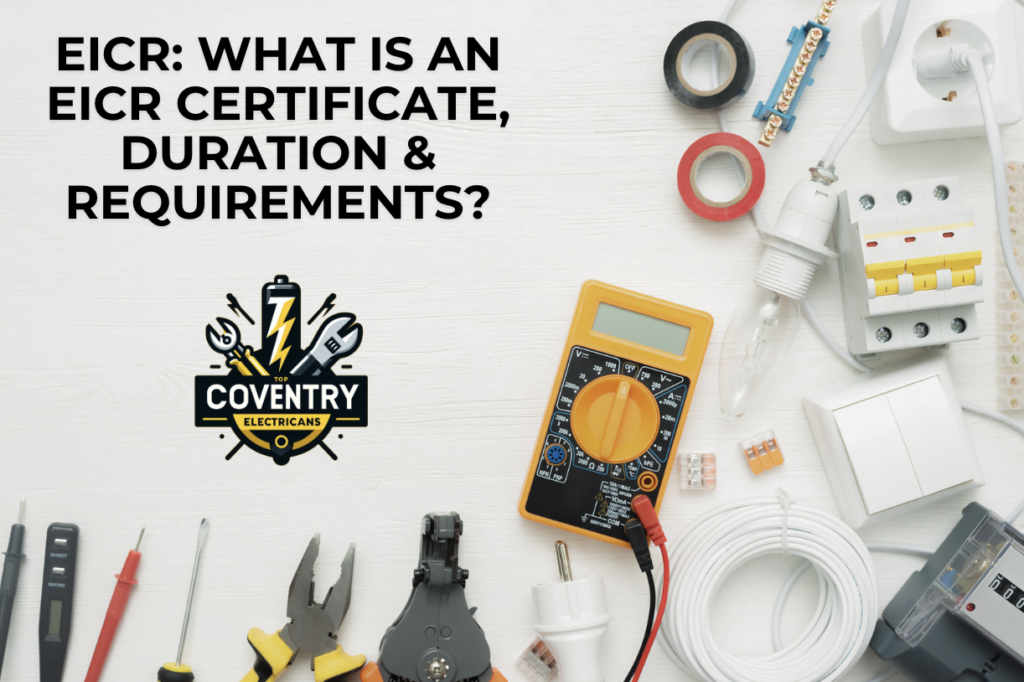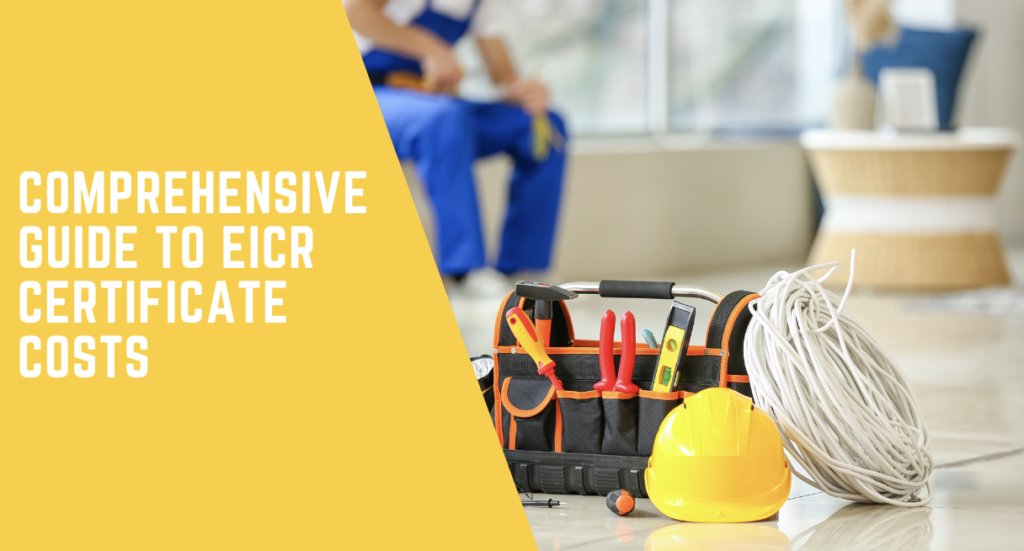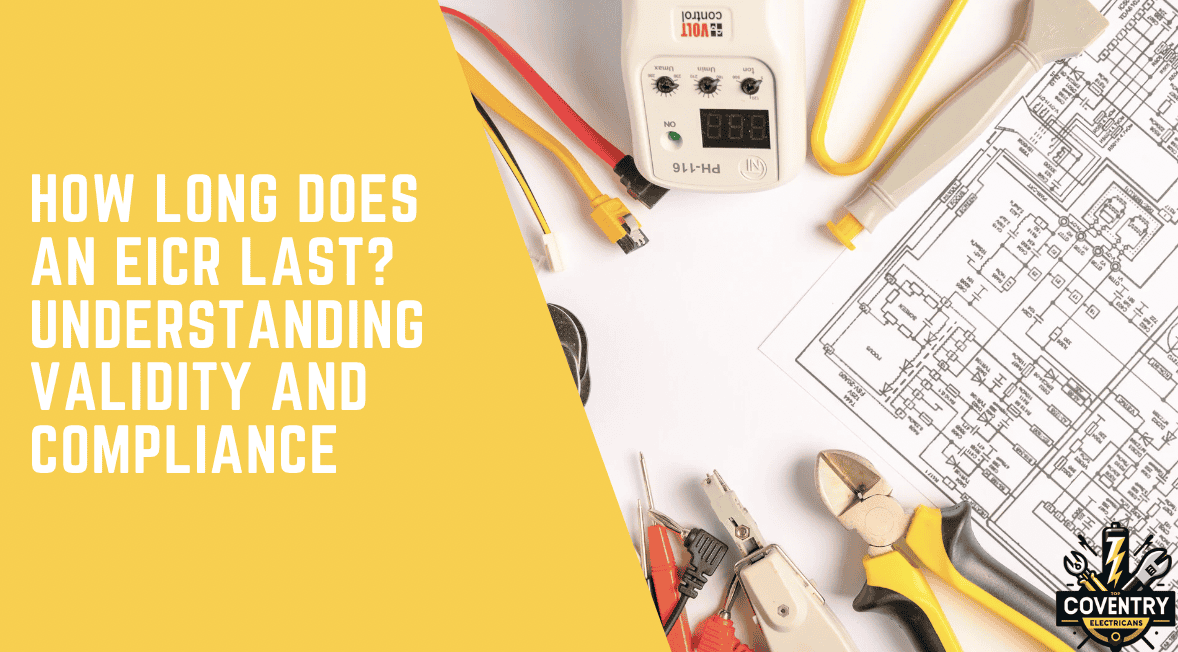

How Long Does An EICR Last? Understanding Validity and Compliance
- ,
- , EICR
When it comes to electrical safety, there’s no room for cutting corners. An electrical installation condition report (EICR) is an absolute must-have for any property owner or manager worth their salt. But how long does this vital document last, you ask? Well, buckle up, because we’re about to dive deep into the world of EICRs, validity periods, and keeping your property shipshape with the electrical safety standards.
Quick Answer:
For residential properties, an EICR is typically valid for 5 years. For commercial premises with higher usage and risk, the validity period is 3 years. These guidelines ensure electrical installations remain safe and compliant with regulations.
Key Takeaways:
An EICR (Electrical Installation Condition Report) is a comprehensive inspection of a property’s electrical installation, required by law to ensure electrical safety.
Failure to comply with EICR requirements can result in hefty fines, legal penalties, and put people’s safety at risk.
Regular EICRs help identify and rectify potential electrical faults before they escalate into major issues, saving money and preventing accidents.
Introduction To EICR
What is an Electrical Installation Condition Report (EICR)?
Let’s start with the basics, shall we? An EICR, my friends, is a comprehensive inspection of your property’s entire electrical installation conducted by a qualified and competent electrician. Think of it as a full body check-up for your electrics.
These seasoned professionals will scrutinise every nook and cranny, leaving no circuit untested and no earthing connection unexamined. From the main distribution board to the last socket on the top floor, they’ll ensure it’s all up to snuff and in line with the latest safety regulations.
Find out more here: What Is An EICR Certificate?
The Importance of EICR in Ensuring Electrical Safety
Here’s the thing – electricity is a powerful force, and when not handled with care, it can have devastating consequences. Faulty electrical systems can pose serious risks to both property and life, not to mention the potential for costly damages that’ll leave you out of pocket.
That’s why getting regular electrical installation condition reports is an absolute necessity. These inspections act as a safety net, helping to identify and rectify any potential electrical faults before they escalate into a full-blown catastrophe. It’s like having a trusty smoke detector for your electrics, giving you peace of mind and helping you sleep soundly at night.

The Lifespan of an EICR
Standard Validity Periods for EICR
Now, let’s get to the meat of the matter – how long does an EICR actually last? Well, it’s not a one-size-fits-all answer, but here’s a general guide to help you navigate the validity periods:
Residential Properties
For your average home sweet home, the recommended frequency for a new EICR is every 5 years. Unless, of course, there are any extenuating circumstances that might warrant more frequent inspections.
Commercial Properties
When it comes to commercial premises, be it an office block, a retail store, or a factory, the guidelines are a little stricter. In these cases, you’ll need to get an EICR every 3 years to ensure the safety of employees, customers, and visitors alike.
Factors Influencing EICR Validity
But wait, there’s more! The validity period of your electrical installation condition report eicr can be influenced by a few other factors too. Let’s take a quick look:
Age and Condition of Installation
Older electrical installations, or those that have seen better days, might require more frequent checks to ensure they’re still up to scratch. After all, time and wear-and-tear can take their toll, and it’s better to be safe than sorry.
Type of Property and Usage
The way a building is used can also play a part in determining how often you need an EICR. For instance, if you’re a landlord managing rental properties with a high turnover of tenants, more regular inspections could be a wise investment to protect both your asset and your occupants.
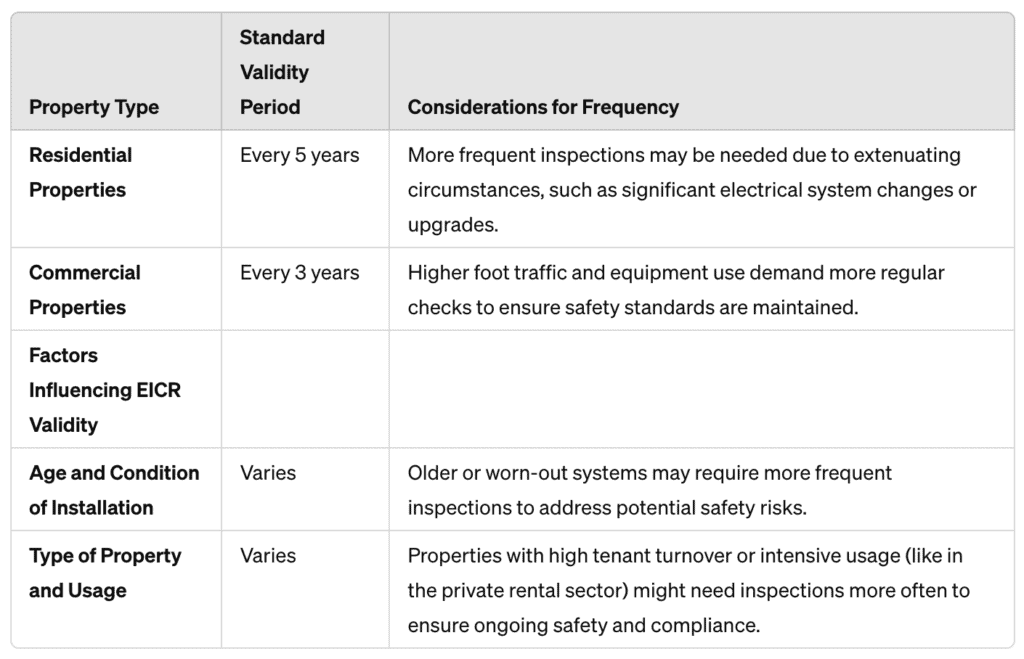
Legal and Regulatory Framework
Legislation Surrounding Electrical Safety and EICR
- Now, this electrical safety malarkey isn’t just a friendly suggestion – it’s the law. Various regulations and standards have been put in place by the authorities, be it the local housing authority or other governing bodies, to ensure the safety of properties and their occupants.
Failing to adhere to these electrical safety standards can land you in hot water, with potential legal consequences and financial penalties. So, it’s in your best interest to stay on top of your EICR obligations and keep everything above board.
Requirements and Responsibilities for Property Owners
As the proud owner or manager of a property, the buck stops with you when it comes to ensuring electrical safety. It’s your responsibility to make sure the electrical installation remains safe and compliant with all relevant regulations.
Regular EICRs conducted by a qualified and competent electrician are a crucial part of this obligation. Not only will it help you identify and address any issues promptly, but it’ll also provide documentary evidence using EICR codes that will identify and serious issues and show that you’re taking the necessary steps to maintain a safe environment for all.
EICR for Different Stakeholders
Who Needs an EICR?
While the importance of EICRs is undeniable, you might be wondering who exactly needs to get one. Well, the short answer is – pretty much everyone with a property! Let’s break it down:
Landlords and Homeowners
If you’re a landlord renting out a property, having an up-to-date EICR report isn’t just a nice-to-have – it’s an absolute must. Not only is it a legal requirement in many cases, but it also protects your investment and ensures the safety of your tenants.
But even if you’re a homeowner living in your own property, it’s still wise to stay on top of your EICRs. After all, your home is likely your most valuable asset, and an electrical fault could put everything at risk.
Business Owners and Facilities Managers
- For commercial properties, be it an office, a shop, a factory, or any other type of business premises, regular electrical installation certificates are non-negotiable. Not only do they help ensure the safety of your employees and customers, but they’re also often a legal requirement to maintain your operating license.
Facilities managers and property owners have a duty of care to provide a safe working environment, and EICRs are a crucial part of that obligation.
Benefits of Regular EICR Assessments
While getting an EICR might seem like an added expense, the benefits far outweigh the costs. Regular periodic inspections can help identify potential issues early on, before they escalate into major (and often more expensive) problems.
Speaking of costs, interested in knowing how much EICR costs?
An EICR electrician can spot and rectify any niggles or wear-and-tear before they turn into full-blown electrical faults, potentially preventing costly repairs, downtime, or even accidents. It’s like getting your car serviced regularly – a little preventative maintenance can save you a whole lot of headaches down the road.
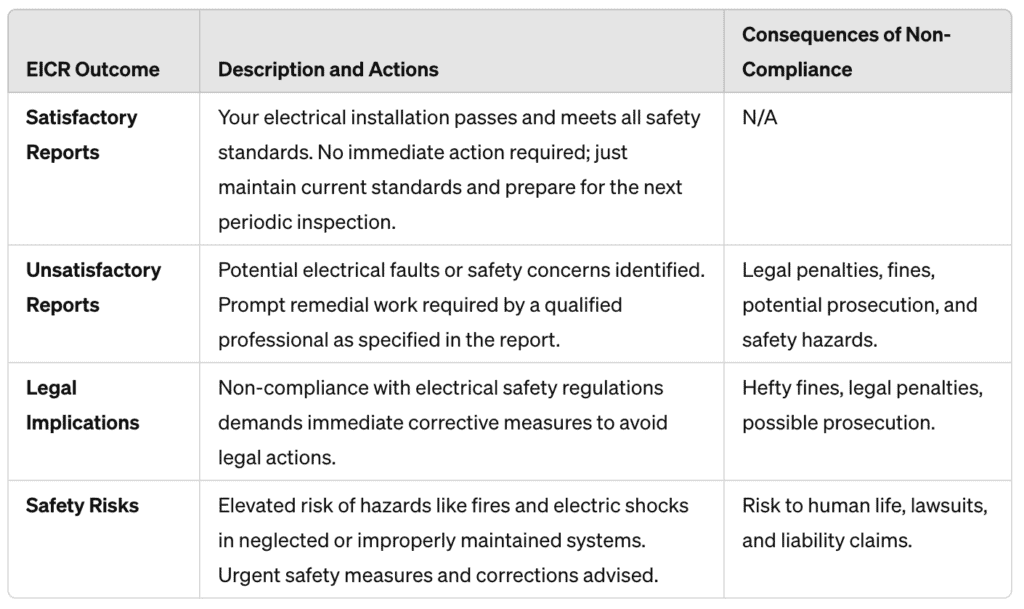
What Happens After an EICR?
Understanding EICR Outcomes
So, you’ve bitten the bullet and had your property’s EICR conducted. But what happens next? Well, it all depends on the outcome of the inspection:
Satisfactory Reports
- If your eicr certificate gives your electrical installation a clean bill of health, congratulations! That’s music to any property owner’s ears. You can rest easy knowing your electrics are up to code, and you won’t need to worry about it again until the next inspection date rolls around.
Unsatisfactory Reports and Required Actions
On the flip side, if the inspection uncovers any potential electrical faults or areas of concern, the report will outline the specific issues that need to be addressed. This could range from minor repairs and replacements to more extensive remedial work, depending on the severity of the findings.
In such cases, it’s crucial to act promptly and get the recommended work carried out by a qualified professional. Ignoring the report’s recommendations could not only put you in breach of regulations but could also put people’s safety at risk – not something anyone wants on their conscience.
The Consequences of Ignoring EICR Guidelines
Speaking of ignoring EICR guidelines, let’s talk about the potential repercussions of doing so. And trust us, it’s not pretty:
Legal Implications
Failure to comply with electrical safety regulations and EICR requirements can land you in some serious hot water with the authorities. Depending on the severity of the offense, you could be facing hefty fines such as this landlord in Coventry, legal penalties, or even prosecution in extreme cases.
Not to mention, if an accident or incident were to occur due to a lack of proper electrical maintenance and inspections, you could find yourself on the receiving end of costly lawsuits and liability claims. It’s simply not worth the risk.
Safety Risks
More importantly, ignoring EICR guidelines puts people’s safety at risk. Faulty electrical installations can lead to fires, electric shocks, and other hazards that endanger lives. No amount of money or convenience is worth jeopardising someone’s wellbeing over.
Maintaining a safe property should be the top priority for any responsible owner or manager. Regular EICRs are a crucial step in identifying and mitigating potential dangers before they can cause harm.
FAQs: Debunking Myths On How long does an eicr last?
We know you’ve got questions, and we’ve got answers! Here are some frequently asked questions about EICRs and how long they last?
Is EICR 3 years or 5 years?
The standard validity period for an EICR is 5 years for residential properties and 3 years for commercial premises.
Can EICR be valid for 10 years?
No, an EICR cannot be valid for 10 years. The maximum recommended validity period is 5 years, even for residential properties.
How often do you need to do EICR?
You should get an EICR every 5 years for residential properties and every 3 years for commercial premises, unless specific circumstances necessitate more frequent inspections.
What is the validity of an EICR certificate?
An EICR certificate is typically valid until the next recommended inspection date, which is either 3 years or 5 years from the date of the previous inspection.
Why is my EICR only valid for 3 years?
If your EICR is only valid for 3 years, it’s likely because the property is a commercial premises, where the guidelines are stricter due to higher usage and risk.
Do I need a 5-year electrical certificate?
Yes, for residential properties, you generally need to obtain a new EICR or 5-year electrical installation condition report every 5 years.

